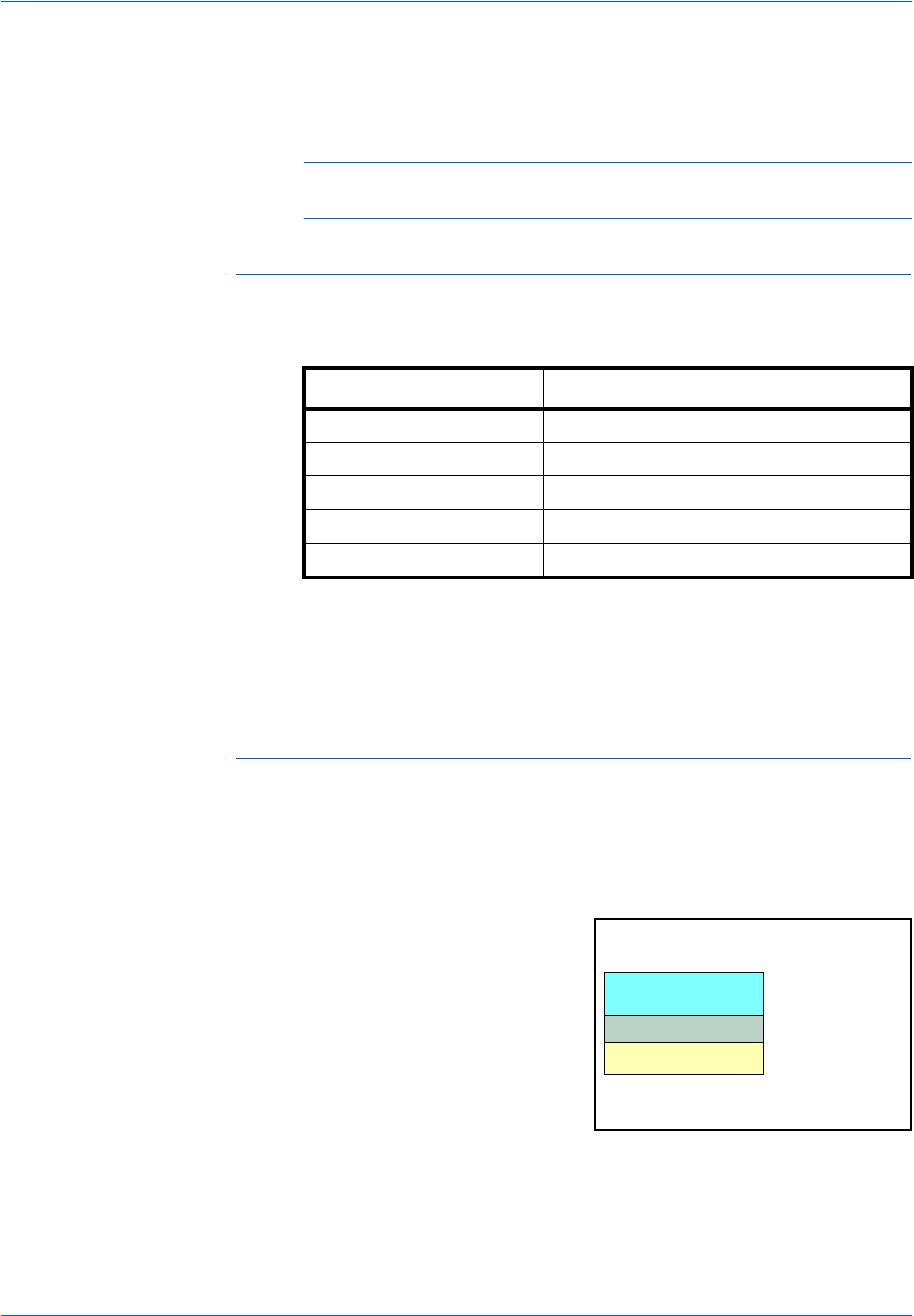
Appendix
ADVANCED OPERATION GUIDE Appendix-7
Since the composition and quality of special paper vary considerably,
special paper is more likely than white bond paper to give trouble during
printing. No liability will be assumed if moisture and so forth given off during
printing on special paper causes harm to the machine or operator.
NOTE: Before purchasing any type of special paper, test a sample on the
machine and check that printing quality is satisfactory.
Transparency
Transparency must be able to withstand the heat of fusing during the
printing process. It should satisfy the conditions in the table below.
To avoid problems, feed transparencies from the Multi-Bypass Tray,
loaded with the long side toward the main body.
If transparency jams frequently, pull the top of the sheet very gently as it
leaves the machine.
Labels
Labels must be fed from the Multi-Bypass Tray.
The basic rule for printing on adhesive labels is that the adhesive must
never come into contact with any part of the machine. Adhesive paper
sticking to the drum or rollers will damage the machine.
Label paper has a structure
comprising of three layers, as
shown in the diagram. The top
sheet is printed on. The adhesive
layer consists of pressure-
sensitive adhesives. The carrier
sheet (also called the linear or
backing sheet) holds the labels
until used. Due to the complexity
of its composition, adhesive-
backed label paper is particularly likely to give printing problems.
Adhesive label paper must be entirely covered by its top sheet, with no
spaces between the individual labels. Labels with spaces in between are
liable to peel off, causing serious paper jam problems.
Item Specification
Tolerance of heat Must tolerate at least 190°C (374°F)
Thickness 0.100 to 0.110 mm (3.9 to 4.3 mils)
Material Polyester
Dimensional accuracy ±0.7 mm (±0.0276 in)
Squareness of corners 90° ±0.2°
Top sheet (white
bond paper)
Adhesive
Carrier sheet


















